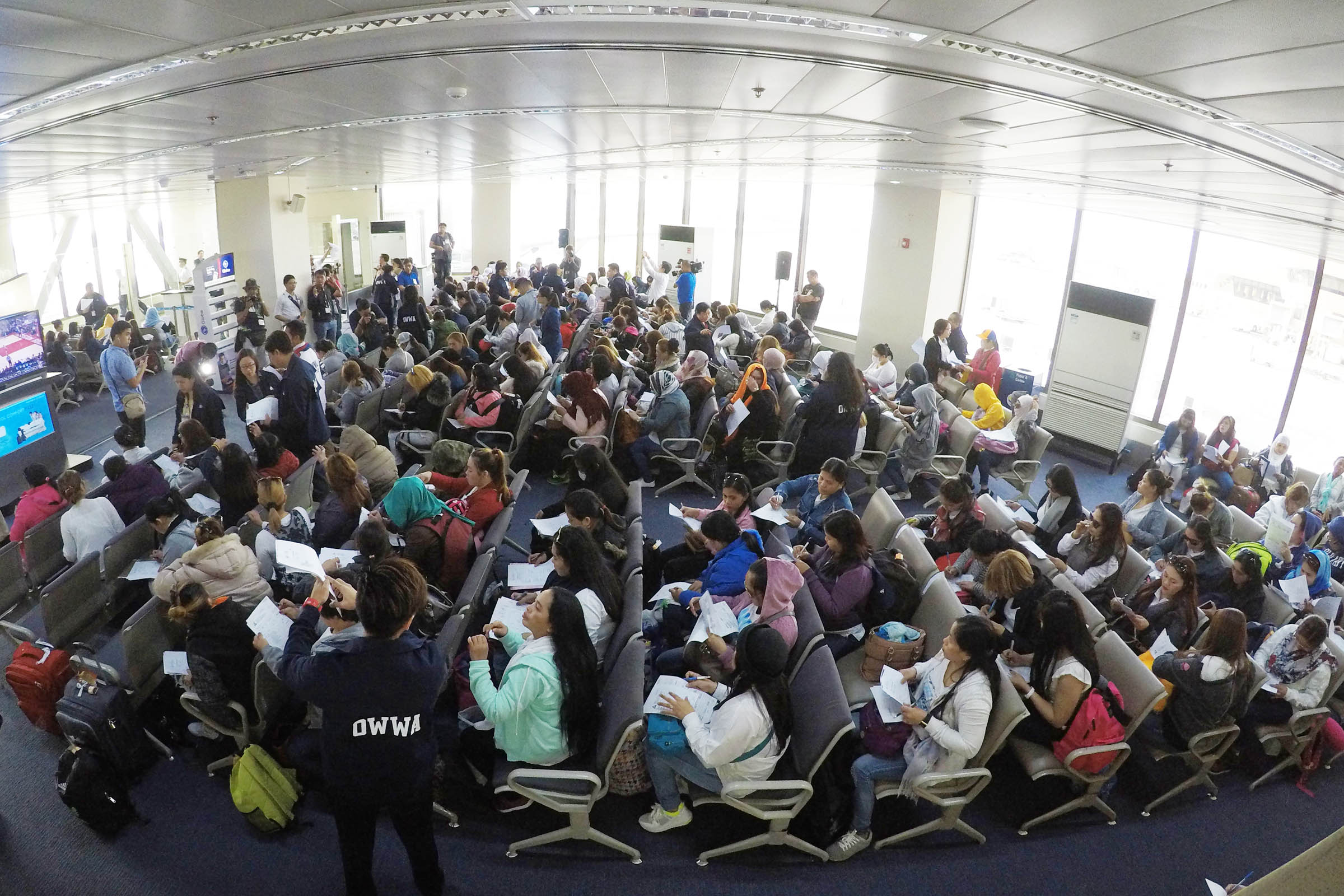Headline
OFW remittances loss in Iraq, Iran little impact on PH economy

FILE: Overseas Workers Welfare Administration (OWWA) Administrator Hans Leo Cacdac and OWWA officers welcome distressed Overseas Filipino Workers (OFWs) who were repatriated from Kuwait through Philippine Airlines (PR) 669 at the Ninoy Aquino International Airport (NAIA) Terminal 1 in Pasay City on Monday morning. (Feb. 12, 2018). (PNA photo by Avito Dalan)
MANILA – Albay Rep. Joey Salceda on Friday said the country’s economy should be able to absorb whatever loss in remittances that could result from the total repatriation of overseas Filipino workers (OFWs) in Iraq amid the Middle East turmoil.
In an aide-memoire addressed to President Rodrigo Duterte regarding the socio-economic implications of the US-Iran tensions to the Philippines, Salceda said remittances among the conflict’s core countries—Iran and Iraq–account for 0.002 percent of remittances from abroad.
Salceda further cited Bangko Sentral ng Pilipinas (BSP) data showing that remittances from both countries in 2018 were only at USD0.45 million, representing only 0.007 percent of total remittances from the Middle East in 2018.
Salceda, however, noted that the real threat to the Philippine economy comes from the possibility of other Persian Gulf states–Oman, Qatar, Bahrain, United Arab Emirates, and Kuwait–becoming directly involved in a military conflict.
“What should be more concerning is a full-scale regional war where regional actors intervene. Among Middle East countries, economies likely to be embroiled in such a conflict are those of Qatar, the United Arab Emirates, Oman, Bahrain, and Kuwait,” he said.
“Given its pivotal role in previous conflicts between the United States and some Middle Eastern states, as well as its strategic location between Iraq and Iran, Kuwait is the country most likely to be affected by rising regional tensions,” he added.
The economist-lawmaker cited BSP data stating remittances from the said small Persian Gulf countries represent USD3.9 billion or 60 percent of total remittances from the Middle East.
He said recent pronouncements from institutional actors in both the US and Iran that retaliatory exchanges between both countries will be targeted, the likelihood of large-scale, drawn-out regional conflict remains slim.
He said while a full-scale regional war is unlikely, the President is correct in requesting for contingency measures.
Salceda also assured that the House would be prepared to accommodate a request for a standby fund for repatriating OFWs.
“Nevertheless, and given the primacy of the safety of OFWs among relevant priorities, it would be prudent and proactive if the Philippine government prepares precautionary contingencies to ensure that it is prepared to address the need to repatriate citizens from the Gulf states,” he said.
“Towards this end, the House of Representatives should stand prepared to respond positively to a request from the President for a ‘standby fund’,” he added.
He pointed out that the budget’s timely passage and the extension of the 2019 budget will give the Philippine economy some cover amid the ongoing tensions.

